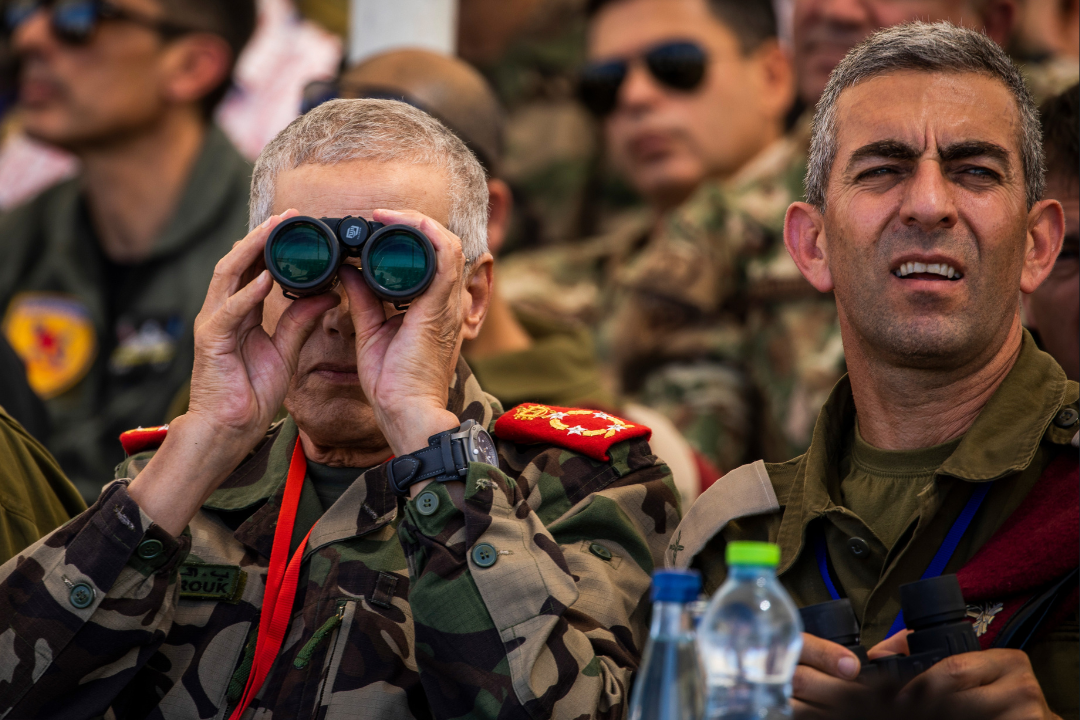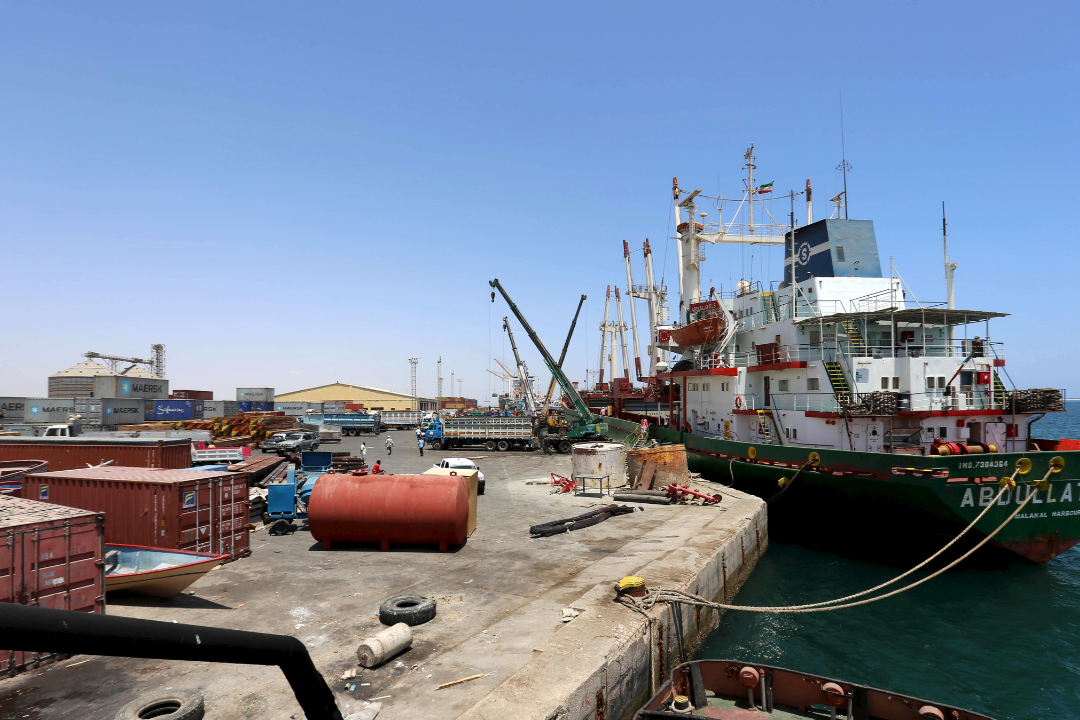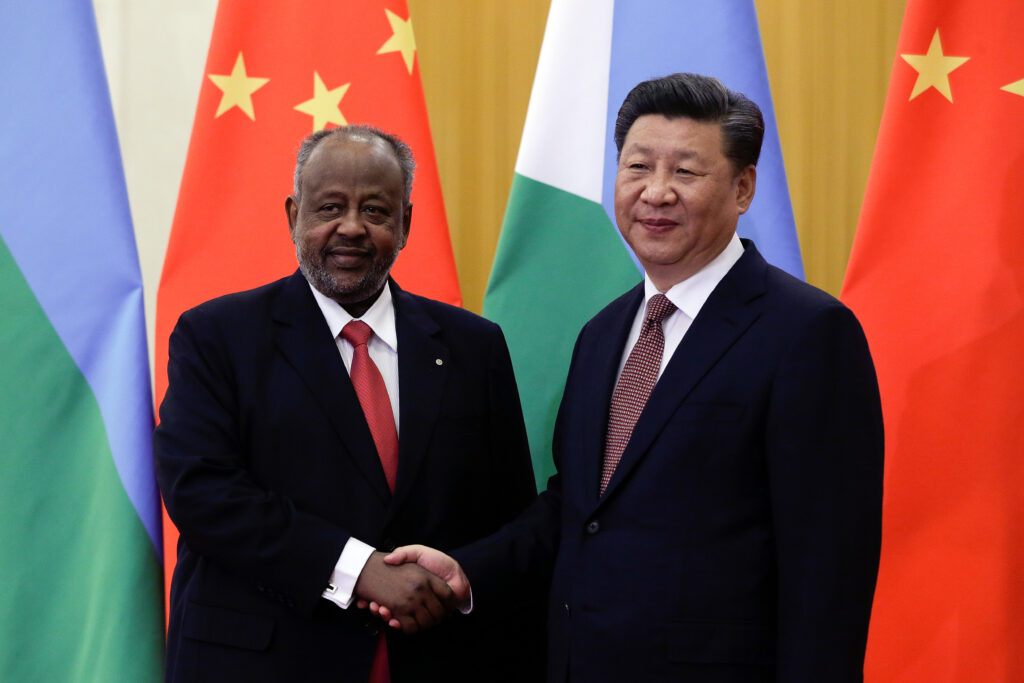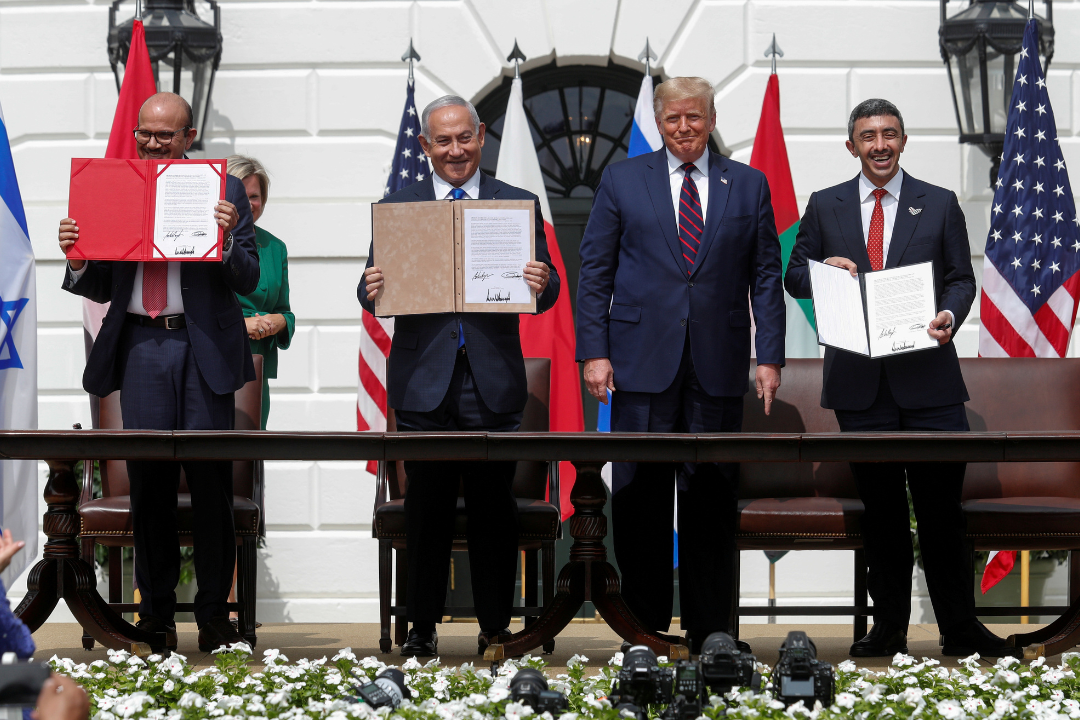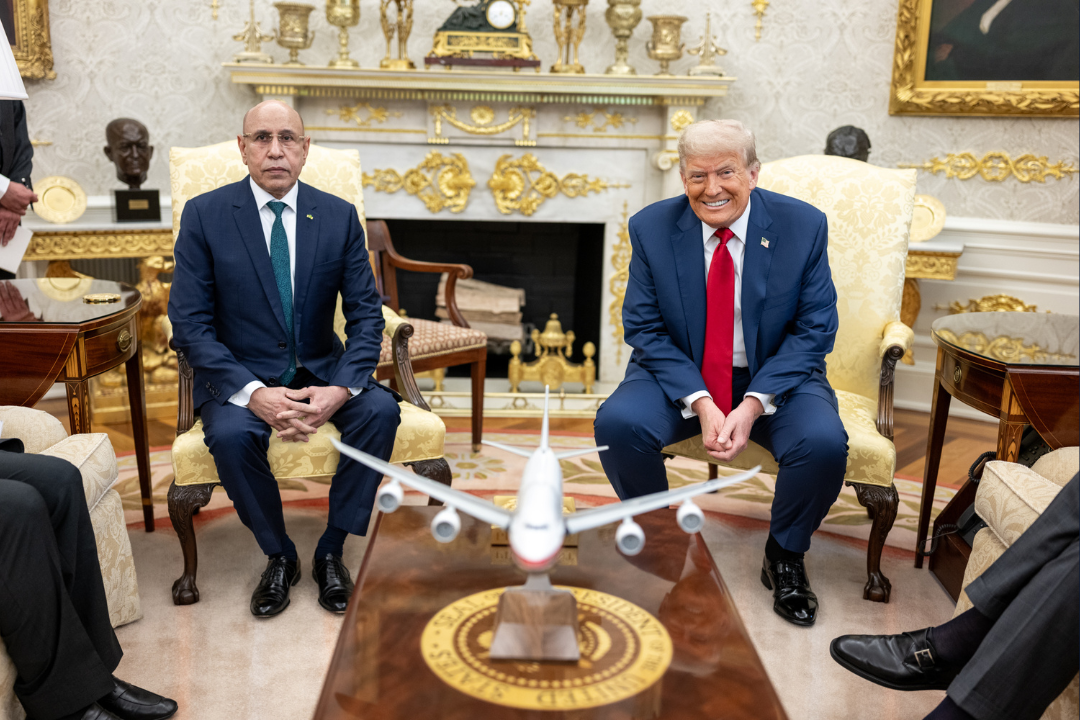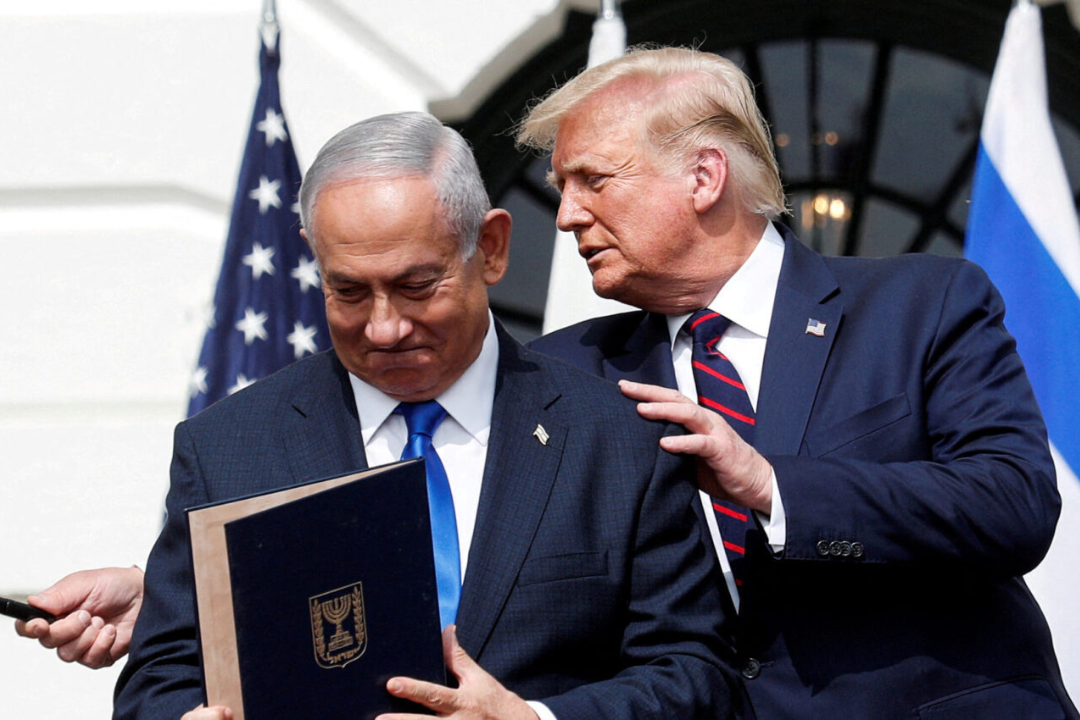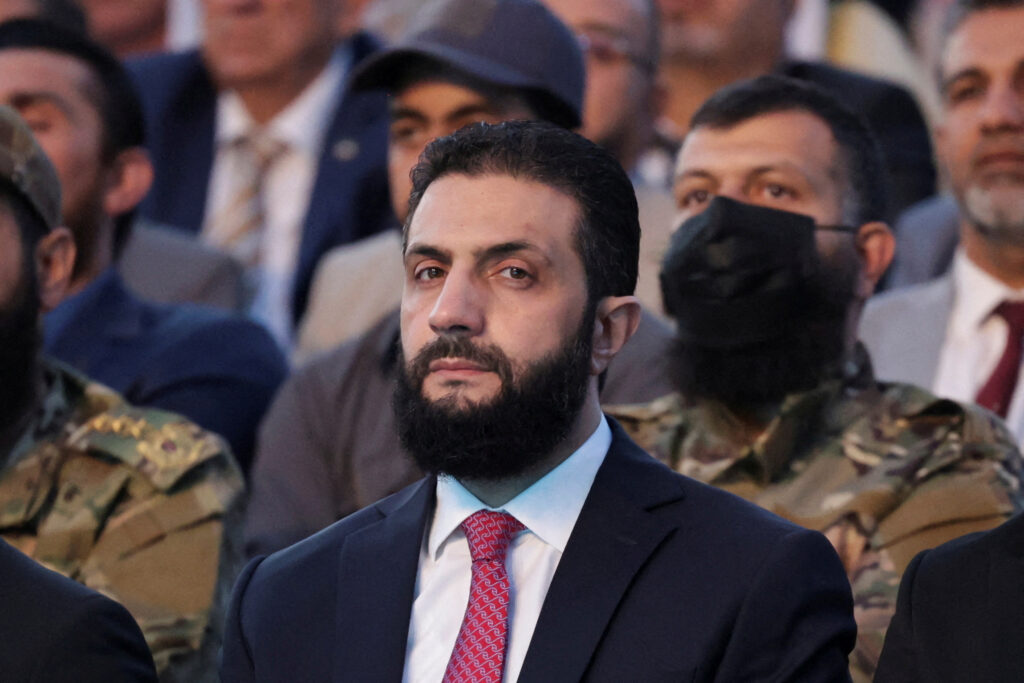Many analysts predicted the end of the Moroccan-Israeli rapprochement, which was initiated by the 2020 tripartite agreement brokered by the United States, because of pressure from pro-Palestinian sympathizers in Rabat amid the Gaza war. Instead, the raging conflict in the Middle East only brought the two countries closer as, on October 7, 2023, Rabat saw in action the potential menace of a pro-Iranian Polisario proxy in Western Sahara.
Like other Arab countries with existing diplomatic ties with Israel, Morocco needed to appease its local public opinion by reducing its public-facing appearances with its newly gained ally and raising the tone of its official speeches calling for a ceasefire and a two-state solution as the war continued to escalate. Yet, far from the crowded streets of Tangier or Casablanca, where pro-Palestinian demonstrators gather, another reality persists in the country’s security and intelligence spheres. In reality, security cooperation between Israel and Morocco is flourishing and has never been stronger, driven by a common Iranian threat and a shared vision for regional integration.
Countering Iranian Neo-Sasanian imperialism
Since 2018, Morocco has warned about Iranian expansionist ambitions in Western Sahara following its severance of relations with Tehran over alleged military and financial support for the Polisario Front separatists through Lebanese Hezbollah. Reports have confirmed increased Iranian interference in the disputed territories of Western Sahara, which Morocco has claimed sovereignty over since its independence from Spain in 1975. This interference has involved Iran supplying lethal unmanned aerial vehicles (UAVs), surface-to-air missiles, and HM-16 mortar shells, along with training that has emboldened the separatist group. Consequently, Polisario forces began shelling towns within the Moroccan-administered areas of Western Sahara, specifically in Smara and Mahbes, alongside the Gaza war. This is a troubling development, as these actions violate the ceasefire established in September 1991.
The recent fall of the Bashar al-Assad regime may have uncovered the depth of relations between the Polisario Front and Iran, with Syria acting as the intermediary. Amid the chaos following the fall of Damascus, an unverified document emerged that revealed correspondence between the Syrian Ministry of Defense and the self-proclaimed Sahrawi Republic regarding the training of 120 Polisario soldiers in armed combat at Iran’s request. During the capture of Aleppo in Northern Syria, at least thirty Sahrawi mercenaries were apprehended by rebel forces, while Fahad Almasri, the head of Syria’s National Salvation Front, disclosed that Iran’s Islamic Revolutionary Guard Corps had dispatched about two hundred Polisario members to Thaala military airport, the Sweida army base, and rural Daraa over the past three years. Recently, Representative Joe Wilson of South Carolina (R-SC) also briefed the US House about the situation, stating that “war criminal Putin, Iran & Cuba are actively destabilizing West Africa by supporting Polisario Front, a threat to the Kingdom of Morocco—an essential US partner.”
The partnership between Morocco and Israel is inspired and reinforced by their shared interest in opposing Iran’s expansion and its anti-Western, Neo-Sasanian ideology, which traditionally saw Arabs as vassal kingdoms like the Lakhmids. Iran is looking to recreate this pattern through its regional proxies in countries like Lebanon, Iraq, Yemen, and—if the international community doesn’t address this pressing threat—in Western Sahara. However, the kingdom failed to persuade its own population that its alignment with Israel is not against the Palestinian cause but against Iranian malign expansionist ambitions in the region.
The Moroccan population has long-standing and established ties with the Palestinian people—with whom it shares culture, language, and religion—and a large portion has become increasingly vocal in demanding an end to normalization with Israel amid the deteriorating humanitarian situation in Gaza. Recently, a Moroccan citizen who permanently resides in the US even carried out atrocious terrorist attacks, stabbing four people at the heart of Tel Aviv—an incident likely motivated by a deep discontent towards the events in Gaza. This stance, however, is not shared by the political and security apparatus in Rabat, which understands that countries can’t be ruled by sentimentalism, particularly after the collapse of the last of the pan-Arabist regimes in Damascus.
The annals of Morocco-Israel security cooperation
While the Moroccan government publicly attempts to appease the sentiments of its population and strike a balance between Morocco’s Arab-Islamic duties and its higher security interests, in private, security cooperation with Israel is thriving thanks to the intimate relationship between the two allies’ military and intelligence communities.
These institutions have a history of secret cooperation dating back to the 1960s and more formal relations since the late King Hassan II met Prime Minister Shimon Peres in Rabat in 1986. In 2020, the Royal Moroccan Armed Forces reportedly acquired three Israeli-made Heron drones, developed by Israel Aerospace Industries (IAI), for some $48 million. The systems, which were long-endurance models, were intended to be used in reconnaissance missions along the wall of sand in Western Sahara. Rabat’s appetite for Israeli weapons has grown since, with the purchase of the SkyLock Dome anti-drone systems in 2022 for $500 million and the Barak MX missile systems in 2023 for another $500 million, and the announcement in 2024 of the opening of a drone manufacturing facility by Israeli BlueBird Aero Systems in Morocco.
Business has continued to strengthen since the onset of the Gaza war. On the defense side, Morocco is poised to acquire a spy satellite from IAI in a $1-billion deal. Rabat recently faced backlash from local human rights groups when it extradited Nassim Khalibat, a Palestinian holding an Israeli passport who is suspected of being behind the 2021 bombing of the Nazareth Health Ministry. Trade cooperation has also increased, with bilateral exports reaching $53.2 million during the first six months of 2024, a 64-percent increase from the same period last year.
Beyond the practical benefits of cooperation, deeper historical and cultural ties are also at the foundation of this intimate relationship. Indeed, many Israeli security leaders have roots in the once-Jewish kingdom of Morocco. Meir Ben-Shabbat, the former Israeli national security advisor and a Moroccan Jew, once famously performed the allegiance bow before King Mohamed VI, repeating, “May God bless your age, my master” in Arabic. Another key figure is Amir Perez, the architect of the Israeli Iron Dome, who—like Yassine Manssouri, the head of the Moroccan intelligence services—was born in the small mountainous town of Boujad. One in ten Israelis today have Moroccan ancestry, including influential politicians like Speaker of the Knesset Amir Ohana, Aryeh Deri, and Yaakov Margi, to name only a few. Moroccan-Israeli relations have become stronger than ever since the recent events in the Middle East, and those relations are here to stay.
Though the United States brokered it, this critical alliance transcends Washington’s mediation and will be sustained by shared history and common geostrategic interests. Morocco has no intention of closing its liaison office in Tel Aviv like it did in 2000 during the Second Intifada, no matter how loud the popular opposition in Rabat becomes. Recently, a high-level Moroccan official told me it was “a regrettable decision that the kingdom is not prepared to repeat in light of a regional threat that may cost us half of our territories and the security of our children.” He added, “We share with the Israelis a common destiny and a vision for a peaceful and prosperous future.”
Sarah Zaaimi is a resident senior fellow for North Africa and deputy director for communications at the Atlantic Council’s Rafik Hariri Center and Middle East Programs.

